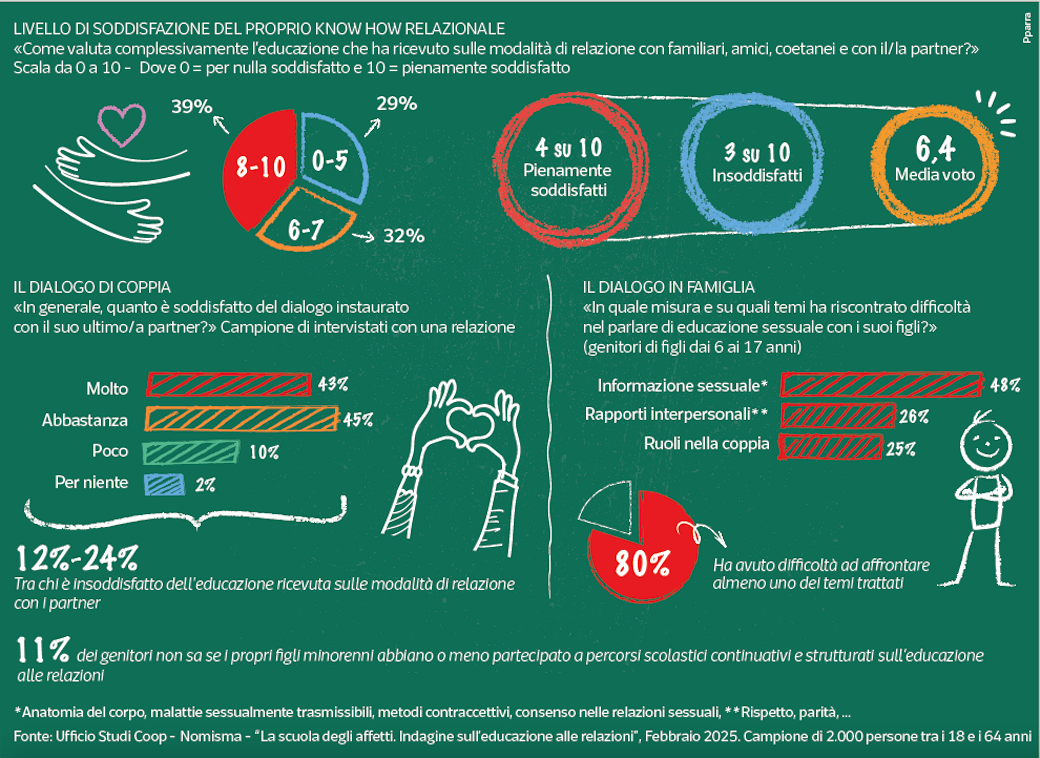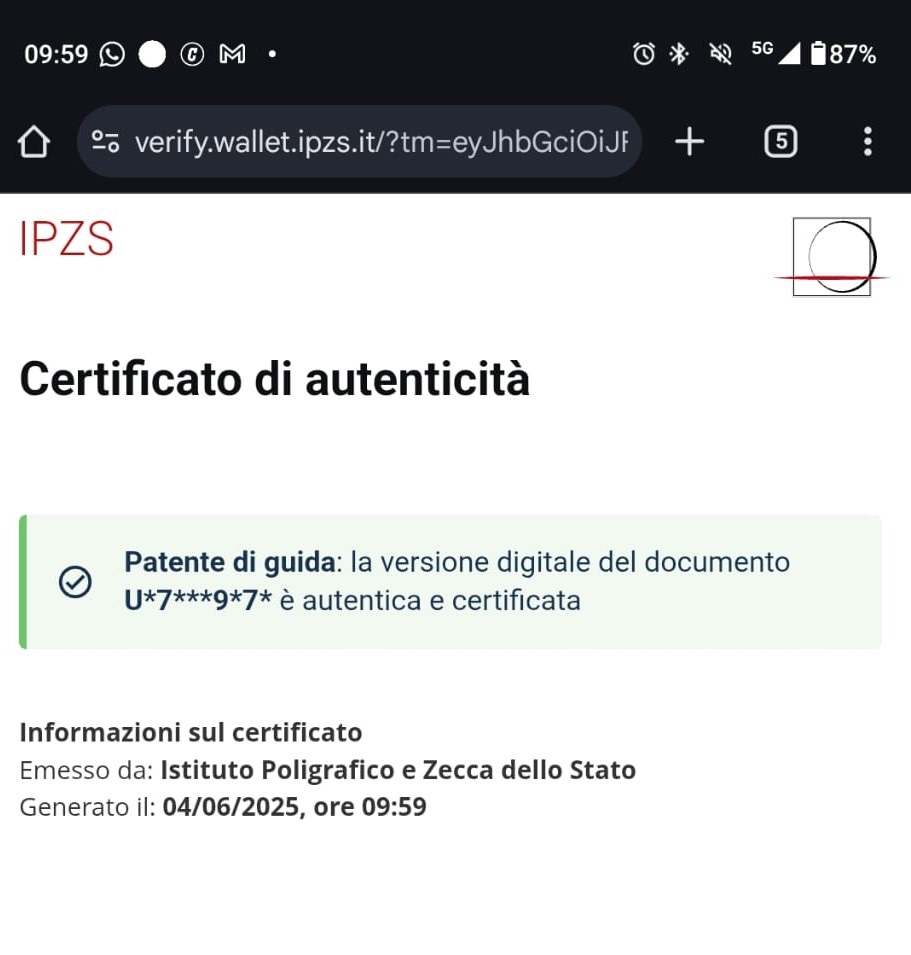Bringing the education to relationships in class ask for 8 out of 10 parents

Not only small lessons of anatomy, meetings are needed to prevent and combat hatred phenomena, marginalization and gender violence. For 70% of families the frequency should be mandatory, almost half of the Italians supports the importance of starting from the primaries. The data in Coop’s study with Nomisma
Introducing sex education and relationships to school is a debate that has been holding over for at least fifty years in Italy. Although the WHO indicates the age group between 3 and 5 years like the adequate one to start talking about it, none of the sixteen advanced law proposals has ever managed to pass.
Yet, analyzing the real position of the Italians on the subject, a heartfelt need to adapt to most European countries, which has made sexual education and relationships a mandatory discipline emerges. There are almost eight out of ten parents who consider institutions to promote programs of this type, pressing why they are entrusted to specialized figures. « School autonomy provides that each institute can choose to devote itself to these issues with commercial activities » specifies Enrico Galiano, writer, teacher and social communicator, « but usually translates with the presence of psychologists for six or ten hours in an entire school year. Students don’t even notice it ».
Coop was reported through the investigation « The school of affections », carried out in collaboration with Nomisma, For the new campaign « Saying, doing, loving », in turn part of the « Close The Gap » umbrella campaign, reached the fifth edition, to combat disparity and reduce gender differences. Data that Coop, starting from April, will translate into concrete actions through the sale of a special edition of handkerchiefs whose packaging has been redesigned with information relating to the campaign. The aim is to inform and start a more widespread awareness path.
In Italy, only four out of ten people are fully satisfied with the education they received, recognizing the importance that those notions could have grown once. For example, those who have declared that they are « little » or « at all » satisfied with the dialogue established with the partner, are the same ones who said they were dissatisfied with the education had on the methods of relationship with the partner. This is because the proposed education does not only concern the anatomical sphere, but is used to combat hatred phenomena, marginalization, and gender -based violence. The same feeling of dissatisfaction with one’s own education and, consequently, for the dialogue established with their children, 23% of parents live it.
And if there is no way of receiving teaching from the school, here is the most important role in education the mother has it. In second place is the partner, the friends friends, and only the fourth the father. And where you can talk about it, the most common theme is that of interpersonal relationships such as respect or gender equality. Everything that concerns sexuality (from body anatomy to contraceptive methods) is touched « often » only by 19% of parents, « sometimes » by 46%, « rarely » from 22% and « never » from 13%. The fear is to put anxiety to their children. Hence the need for qualified personnel in schools.
According to Elisabetta Camussi, professor of Social Psychology at the Milan Bicocca University and President of the Ossicini Foundation, this need for a qualified personnel highlights « The request for an accompaniment over time, which also removes the theories that certain gestures are the result of raptus or individual episodes ».
Almost all the sample is convinced of the importance of training training. 88% also ask that to deal with issues relating to relations with the partner are experts in the anti -violence centers.
« The objection that is usually made is that education must be done at home » underlines Galiano, « but I wonder, both if the parents are truly competent in this, both, at that point, and it would end the role of social level of the school ».
So the question is to make sexual education a discipline. The themes in this case are manifold. The first concerns mandatory. For seven out of ten Italians, the education lessons to relations should predict the obligation to attend, for 21% it should be optional. The second theme concerns the school degree. Almost half of Italians (40% of women and 49% of men) support the importance of introducing them from primary schools, but there are also 33% of women (against 15% of men) who claim to have to speak already from childhood.
« This research » concludes Linda Laura Sabbadini, former manager of the Department for the social statistics of Istat and today editorialist, who with Camussi and Galiano forms the scientific committee that guided the works « also tells us that the controversy that follows is more ideological than expression of a large opposition in the country ». There are only three out of ten, in fact, the people who believe can be the risk of early sexualization of children. While for 49% the greatest fear is that the theme can be treated superficially. In any case, the important thing for nine out of ten Italians is to talk about it.








